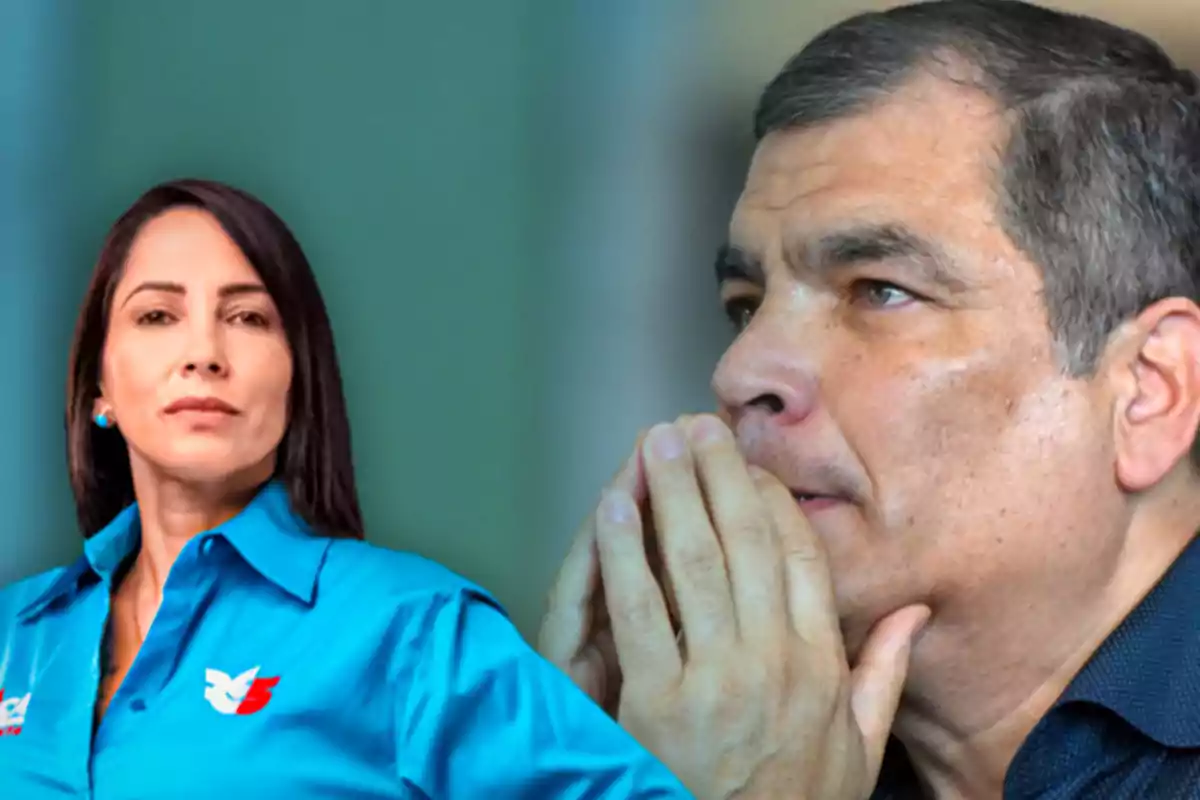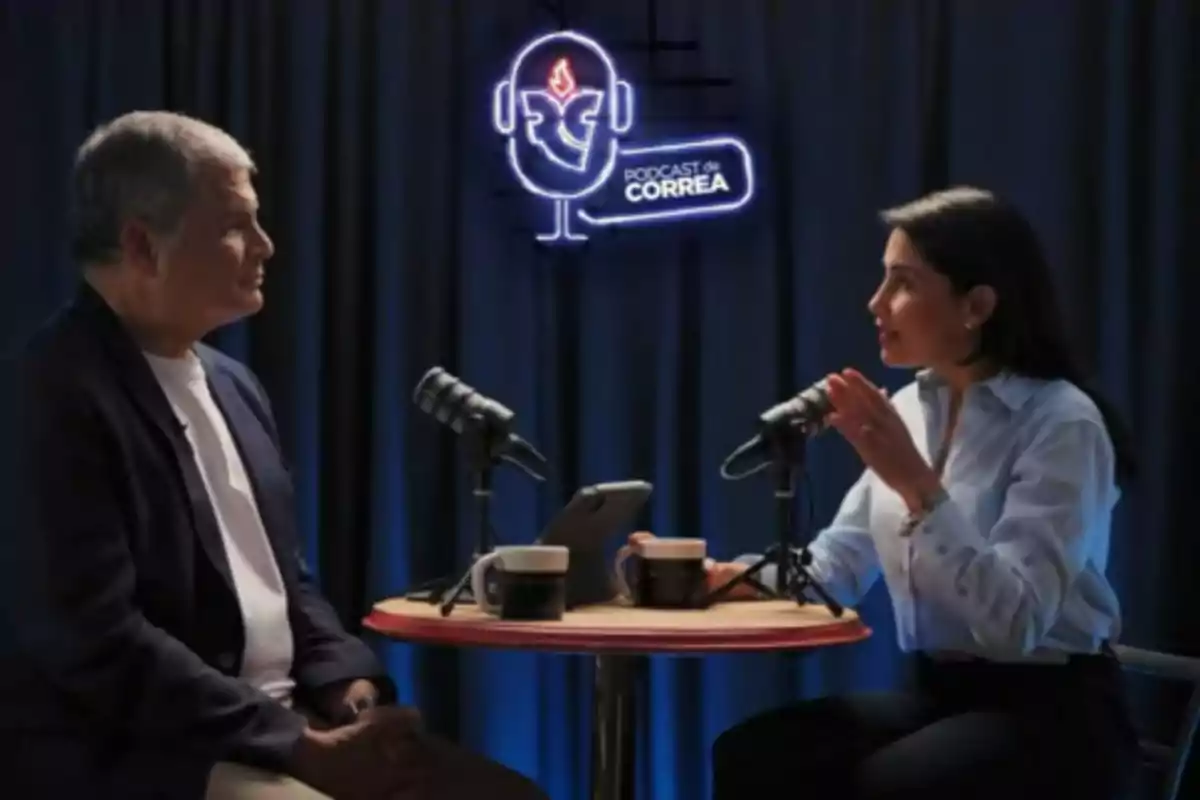
Luisa González's reliance on Correa highlighted the lack of political renewal
Although she tries to distance herself, Luisa González's campaign continues to revolve around Rafael Correa's figure
Luisa González's campaign faced serious difficulties in consolidating an image of her own before the electorate. Although she tried to present herself as an independent figure, her strategy relied on the figure of former president Rafael Correa, whose support remains the central axis of correísmo.
The narrow result of the first round forced her to seek support beyond the hard vote, without clear success. The lack of her own political capital demonstrated that her strength remains anchored in the past, failing to achieve a genuine connection with new sectors of the electorate.
The Citizen Revolution visibly reduced Correa's media exposure, although his digital presence remained active. Between January and February, the former president featured in more than 50 interviews promoted as symbolic tours around the country.
Despite her statements about governing without tutelage, González openly defended Correa's administration in the presidential debate. This double discourse reflected a central contradiction of her campaign: seeking independence without breaking with the legacy that sustains her.

González's team also chose to steer away from unpopular topics like de-dollarization and reduced the visibility of the vice-presidential candidate, Diego Borja. These tactical changes attempted to mask the structural weaknesses of the correísta project.
Meanwhile, local authorities of the movement remained silent, affected by past sanctions like the one imposed on the mayor of Quito. This internal distancing further weakened the image of unity in González's campaign.
In contrast, Daniel Noboa has managed to position himself as a fresh alternative, capable of appealing to diverse sectors without anchoring himself to a figure from the past. His discourse has revolved around action, security, and innovation, elements absent in the correísmo model.
In the words of political analyst Martín Rivadeneira: "González can't escape Correa's shadow, while Noboa builds his own light". This phrase summarizes the central dilemma of a candidacy that hasn't managed to take off on its own.

The second round will determine whether the country bets on a proposal of real renewal or the repetition of a model that, although still retaining support, hasn't been able to adapt to new social demands.
While Daniel Noboa bets on the future, Luisa González's campaign remains anchored to the past. Her dependence on Correa evidences a lack of renewal that could cost her the support of the most critical and disenchanted sectors of the electorate.
More posts: